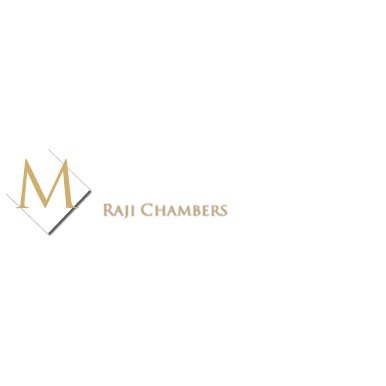Best Private Equity Lawyers in Nigeria
Share your needs with us, get contacted by law firms.
Free. Takes 2 min.
Or refine your search by selecting a city:
List of the best lawyers in Nigeria
Legal guides written by Adeola Oyinlade & Co:
- Procedure and Requirements for Work Permit and Visas in Nigeria
- The Step-By-Step Procedure of How to Apply for Microfinance Bank License Online in Nigeria
- How to Ensure the Smooth Recognition and Enforcement of Foreign Judgments in Nigeria
About Private Equity Law in Nigeria
Private Equity (PE) in Nigeria refers to investment funds, generally organized as limited partnerships or companies, that buy and restructure companies that are not publicly traded. Private equity investors pool money to acquire stakes in businesses with the goal of enhancing value and eventually selling those investments for a profit. The sector has grown steadily in Nigeria due to a dynamic economy, a rising entrepreneurial climate, and increased interest from both local and international investors. The industry attracts investments across various sectors such as agriculture, energy, technology, healthcare, and consumer goods. Proper legal guidance is crucial in navigating the regulatory landscape, structuring deals, and managing investor relations within the private equity space.
Why You May Need a Lawyer
Private equity transactions are complex and often require expertise across corporate, finance, tax, and regulatory law. Here are some common situations when individuals or businesses may need a lawyer in the private equity sector in Nigeria:
- Structuring and negotiating buyouts, mergers, or acquisitions
- Drafting and reviewing investment agreements and shareholder agreements
- Conducting due diligence on target companies
- Advising on regulatory compliance with Nigerian authorities such as the Securities and Exchange Commission (SEC) and Corporate Affairs Commission (CAC)
- Addressing cross-border investment and foreign exchange controls
- Dispute resolution, including mediation or litigation arising from investment issues
- Advising on fund formation, licensing, and registration requirements
- Safeguarding intellectual property and assets during investment
- Ensuring compliance with anti-money laundering (AML) and anti-corruption laws
- Strategizing exit plans and tax optimization for investments
Local Laws Overview
Private equity activities in Nigeria are governed by a range of local laws, regulations, and guidelines. Key aspects of local laws relevant to private equity include:
- Companies and Allied Matters Act (CAMA) 2020: Governs the incorporation, structure, operation, and dissolution of companies in Nigeria.
- Securities and Exchange Commission (SEC) Rules and Regulations: Regulate private equity fund registration, administration, and reporting obligations, especially for collective investment schemes.
- Investment and Securities Act (ISA) 2007: Provides investor protection, reporting requirements, and procedures for mergers and acquisitions.
- Nigerian Investment Promotion Commission (NIPC) Act: Addresses foreign direct investment, incentives, and regulatory approvals for foreign participation in Nigerian companies.
- Foreign Exchange (Monitoring and Miscellaneous Provisions) Act: Governs capital importation, remittance of dividends, and repatriation of investment proceeds.
- Tax Laws: Includes Companies Income Tax Act, Value Added Tax Act, and other relevant regulations affecting investment, profits, and asset transfers.
- Anti-Money Laundering Laws: Firms must comply with AML requirements stipulated by the Central Bank of Nigeria (CBN) and Economic and Financial Crimes Commission (EFCC).
- Labour and Employment Laws: When there are workforce changes due to buyouts or restructuring.
Frequently Asked Questions
What is private equity?
Private equity refers to investment in companies that are not listed on a public exchange. Investors provide capital to these companies with the aim of gaining returns through growth, restructuring, or eventual sale.
Who regulates private equity funds in Nigeria?
The Securities and Exchange Commission (SEC) is the principal regulator overseeing the activities of private equity funds, including their registration and ongoing compliance.
Can foreigners invest in private equity in Nigeria?
Yes, foreigners can invest in Nigerian private equity funds or directly in Nigerian companies, provided they comply with the country’s legal, regulatory, and foreign exchange rules.
What legal risks should be considered before investing?
Typical risks include regulatory compliance, enforceability of contracts, changes in government policy, foreign exchange restrictions, tax implications, and disputes arising from investments.
What is due diligence in private equity?
Due diligence is a detailed investigation and assessment of a target company. This includes a review of financial health, legal status, contracts, assets, liabilities, intellectual property, compliance history, and potential risks.
Are private equity investments subject to Nigerian tax?
Yes, profits, dividends, and capital gains from private equity investments are subject to various taxes under Nigerian law, including companies income tax and capital gains tax.
What is an exit strategy in private equity?
An exit strategy outlines how private equity investors intend to sell their stake and realize returns. Common exits include sales to a strategic buyer, initial public offerings (IPOs), or management buyouts.
Is regulatory approval required for every private equity deal?
Some deals, especially those involving certain sectors, foreign investors, or significant changes in ownership, may require approval from regulatory bodies such as the SEC or NIPC.
How are disputes in private equity resolved?
Disputes may be resolved through negotiation, mediation, commercial arbitration, or litigation in Nigerian courts. The chosen method is usually specified in the investment agreements.
How can a lawyer help in private equity transactions?
A lawyer provides essential services such as drafting and reviewing agreements, structuring deals, conducting due diligence, ensuring compliance with laws, managing regulatory filings, and protecting your interests throughout the investment process.
Additional Resources
If you need more information or assistance on private equity matters in Nigeria, the following resources may be helpful:
- Securities and Exchange Commission (SEC) - Regulates capital market and investment activities, including private equity funds.
- Corporate Affairs Commission (CAC) - Responsible for company registration and regulation in Nigeria.
- Nigerian Investment Promotion Commission (NIPC) - Facilitates investment, especially for foreigners and large scale investors.
- Economic and Financial Crimes Commission (EFCC) - Enforces anti-money laundering and anti-corruption laws.
- Central Bank of Nigeria (CBN) - Regulates monetary policy, including foreign currency remittance rules.
- Nigerian Private Equity and Venture Capital Association (NPEVCA) - Industry group that provides networking, education, and best practices for private equity and venture capital operators in Nigeria.
Next Steps
If you are considering a private equity transaction or need advice regarding private equity in Nigeria, the following steps can guide you forward:
- Clearly outline your investment goals and expectations.
- Gather all relevant business documentation and financial records if you are seeking or offering investment.
- Research and identify experienced private equity lawyers or legal firms with expertise in Nigerian investment and regulatory law.
- Schedule a consultation to discuss your needs, concerns, and the best approach for your situation.
- Work closely with your legal advisor throughout the investment process, from due diligence to closing and eventual exit strategies.
- Stay informed about changes in laws, regulations, and industry trends to ensure ongoing compliance and strategic investment decisions.
Legal advice is indispensable in the private equity sector. Seeking professional assistance helps protect your interests, ensures compliance, and improves the likelihood of successful investment outcomes in Nigeria.
Lawzana helps you find the best lawyers and law firms in Nigeria through a curated and pre-screened list of qualified legal professionals. Our platform offers rankings and detailed profiles of attorneys and law firms, allowing you to compare based on practice areas, including Private Equity, experience, and client feedback.
Each profile includes a description of the firm's areas of practice, client reviews, team members and partners, year of establishment, spoken languages, office locations, contact information, social media presence, and any published articles or resources. Most firms on our platform speak English and are experienced in both local and international legal matters.
Get a quote from top-rated law firms in Nigeria — quickly, securely, and without unnecessary hassle.
Disclaimer:
The information provided on this page is for general informational purposes only and does not constitute legal advice. While we strive to ensure the accuracy and relevance of the content, legal information may change over time, and interpretations of the law can vary. You should always consult with a qualified legal professional for advice specific to your situation.
We disclaim all liability for actions taken or not taken based on the content of this page. If you believe any information is incorrect or outdated, please contact us, and we will review and update it where appropriate.
Browse private equity law firms by city in Nigeria
Refine your search by selecting a city.

















